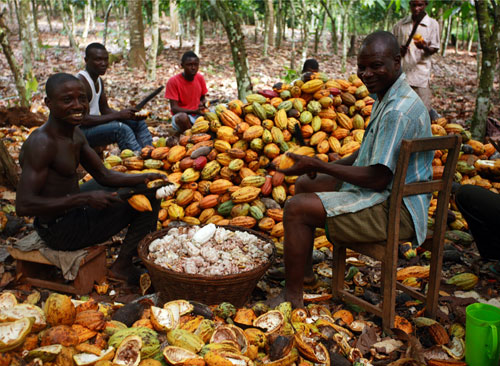

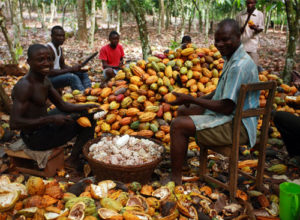 In the cyclical blame game of Ghanaian politics, one group consistently suffers regardless of which party holds power: cocoa farmers. The recent role reversal between the New Patriotic Party (NPP) and National Democratic Congress (NDC) regarding cocoa pricing re-ignites yet again a troubling pattern that transcends partisan politics and points to deeper structural issues within Ghana’s cocoa value chain.
In the cyclical blame game of Ghanaian politics, one group consistently suffers regardless of which party holds power: cocoa farmers. The recent role reversal between the New Patriotic Party (NPP) and National Democratic Congress (NDC) regarding cocoa pricing re-ignites yet again a troubling pattern that transcends partisan politics and points to deeper structural issues within Ghana’s cocoa value chain.
Historically, by mid-1937, major European cocoa buyers—including Cadbury and the United Africa Company—had formed a cartel that colluded to fix cocoa prices at artificially low levels, effectively eliminating market competition and drastically reducing the earnings of indigenous farmers. In a bold and coordinated act of resistance, cocoa farmers across the Gold Coast began withholding their produce from the market in October 1937, initiating what came to be known as the cocoa hold-up. This standoff lasted until April 1938 and evolved into a mass socio-economic movement that gained support across a broad spectrum of society. Key stakeholders—including brokers, traditional chiefs, market women, and transport workers—lent their backing to the farmers’ cause, underscoring the national significance of the protest. Notably, organisers displayed strategic foresight by seeking alternative international markets to bypass the European firms. Reports suggest that emissaries contacted American chocolate companies like Hershey in a bid to establish new trade routes independent of the European-controlled system. The economic impact of the protest was profound. As cocoa exports constituted the backbone of the colonial economy, the sustained disruption forced British colonial authorities to respond. In the aftermath, the British government established the Nowell Commission of Enquiry to investigate the causes and consequences of the crisis.
The Commission’s findings exposed systemic inequities in cocoa trade and recommended significant reforms. These recommendations ultimately culminated in the establishment of the Cocoa Marketing Board in 1947, the predecessor to today’s Ghana Cocoa Board (COCOBOD). This new institution was tasked with stabilising cocoa prices, regulating trade, and ensuring that farmers receive fairer compensation for their produce. Though born out of colonial dynamics, the legacy of the cocoa hold-up is a powerful testament to the collective agency of Ghanaian farmers. It remains a seminal episode in the broader narrative of economic self-determination in West Africa.
The political pendulum of cocoa pricing
The political discourse surrounding cocoa pricing in Ghana often oscillates with the changing tides of governance. Opposition parties frequently advocate for substantial increases in farmgate prices, positioning themselves as champions of farmers’ welfare. However, once in power, these same parties often cite economic constraints and global market pressures to justify more conservative pricing strategies. This pattern suggests that political expediency, rather than a steadfast commitment to farmers’ livelihoods, frequently drives policy decisions.
Recent developments underscore this dynamic. In November 2024, the Ghana Cocoa Board announced an increase in the producer price of cocoa beans from GH¢48,000 (GH¢3,000) per metric tonne to GH¢49,600 (GH¢3,100) per metric tonne for the 2024/25 season. While this move was presented as a commitment to improving farmers’ incomes, critics argue that such adjustments are often timed to coincide with electoral cycles, serving political interests more than addressing systemic issues in the cocoa sector. Furthermore, despite Ghana’s status as the world’s second-largest cocoa producer, farmers typically receive only 60-70% of the Free-On-Board (FOB) price, significantly lower than in liberalised markets. This disparity raises questions about the efficacy of current pricing structures and the extent to which they truly benefit the primary producers. The Ministry of Food and Agriculture has acknowledged these concerns. The sector Minister, Eric Opoku announced that the government would offer cocoa farmers 70% of the world market price for their produce, exceeding the initially proposed 60%. This decision aims to motivate farmers, increase production, and strengthen Ghana’s position in the global cocoa market.
However, the political nature of these pricing decisions has not gone unnoticed. The Minority in Parliament has urged the government to honour its campaign promise by reviewing the cocoa price upwards, highlighting that the continued delay in adjusting cocoa prices is unfair to farmers who are not benefiting from the current high global cocoa prices. While recent price increases are a step towards addressing farmers’ concerns, they may not be sufficient to resolve the underlying structural challenges in Ghana’s cocoa sector. A more consistent and transparent approach, potentially involving liberalisation and increased private sector participation, could better align farmers’ earnings with global market realities and reduce the politicisation of cocoa pricing.
The reality for Ghana’s cocoa farmers
Cocoa farming remains the backbone of Ghana’s agricultural economy, supporting the livelihoods of over 800,000 smallholder households and contributing significantly to the nation’s foreign exchange earnings. In the 2023/2024 season, Ghana produced approximately 550,000 tonnes of cocoa, accounting for 20–25% of the country’s total foreign exchange earnings. Despite this substantial contribution, a significant proportion of cocoa farmers live in poverty. The World Bank sets the extreme poverty threshold at $1.90 per day, yet cocoa farmers in Ghana earn approximately $1 per day, placing them well below this benchmark. This income level is insufficient to meet basic needs such as food, clothing, housing, and healthcare, highlighting the economic challenges faced by these farmers. Several factors contribute to this predicament, notably low productivity. Most cocoa farmers in Ghana manage small plots averaging 2–3 hectares, with average yields of 400–450 kilograms per hectare. This is significantly lower than potential yields of up to 1,000 kilograms per hectare achievable with modern agricultural practices. The yield gap exacerbates income challenges, as farmers are unable to maximise production on their limited landholdings.?
Efforts to address these issues have seen some progress. For instance, during the 2021/2022 crop season, Ghana recorded a historic cocoa production of 1,045,000 tonnes, with average yields increasing from 450 kilograms per hectare in 2017 to 800 kilograms per hectare. This improvement was attributed to various interventions and initiatives implemented by the government. However, despite these gains, many farmers continue to struggle with low incomes and productivity.? While cocoa farming is vital to Ghana’s economy, the majority of smallholder farmers remain trapped in poverty due to low incomes and productivity. Addressing these challenges requires systematic strategies, including improving access to modern farming inputs, providing training on best agricultural practices, and implementing policies that ensure fair pricing and income for farmers.
The living income differential: Progress or politics?
In 2019, Ghana and Côte d’Ivoire, accounting for over 60% of global cocoa production, introduced the Living Income Differential (LID)—a $400 per tonne premium on cocoa exports. This initiative aimed to elevate farmers’ earnings towards a living income, addressing the persistent poverty in cocoa-growing communities. The LID was envisioned as a transformative policy to ensure fairer compensation for farmers and to tackle systemic issues such as child labour and deforestation. Despite the LID’s introduction, the average income of cocoa farmers in Ghana remains about 50% of the living income benchmark. This shortfall underscores the limited impact of the LID in bridging the income gap for farmers. One major hurdle has been resistance from major chocolate manufacturers. While some companies have publicly supported the LID, others have sought to circumvent it by purchasing cocoa through alternative markets or negotiating lower prices, thereby undermining the policy’s effectiveness. A report by the International Institute for Environment and Development reveal that certain buyers have attempted to avoid paying the LID premium, leading to tensions with the governments of Ghana and Côte d’Ivoire.
Furthermore, the benefits of the LID have not been uniformly distributed among farmers. Oxfam’s 2023 analysis revealed that up to 90% of Ghanaian cocoa farmers do not earn a living income, with many surviving on just $2 a day. The report also noted that the premiums paid by corporations, including the LID, have not meaningfully increased farmers’ incomes. This situation is exacerbated by rising costs of farming inputs and the volatility of global cocoa prices. Additionally, the LID’s implementation has faced structural challenges. The establishment of stabilisation funds by Ghana and Côte d’Ivoire was intended to cushion farmers against price fluctuations. However, the effectiveness of these funds has been limited, and the lack of complementary measures, such as supply management and increased transparency, has hindered the LID’s success. The LID represents a commendable effort to improve the livelihoods of cocoa farmers, its impact has been constrained by market resistance, uneven benefit distribution, and structural implementation issues. There is a need for greater collaboration among stakeholders, enhanced transparency, and the adoption of complementary measures that address the multifaceted challenges facing the cocoa sector.
The case for liberalisation: Revisiting Ghana’s cocoa sector
Ghana’s cocoa industry, a cornerstone of the country’s economy, has been historically shaped by colonial legacies and post-independence economic practices. The establishment of the COCOBOD in 1947 was a response to exploitative practices by colonial trading firms, aiming to protect farmers through price stabilisation and quality control. While COCOBOD played a pivotal role in the past, its current structure presents challenges that hinder the economic mobility of cocoa farmers. In recent years, COCOBOD has faced significant financial difficulties. In 2021, the organisation reported a loss of GH¢2 billion, attributed to a decline of over 30% in international cocoa prices. Joseph Boahen Aidoo, then COCOBOD’s Chief Executive, acknowledged that the global market downturn significantly impacted the board’s revenues. These financial strains have broader implications. COCOBOD’s reliance on syndicated loans and government guarantees to cover deficits adds to Ghana’s debt burden. Despite substantial inflows, a significant portion of the revenue is consumed by administrative costs and inefficiencies, limiting the funds that reach farmers.
Comparatively, Côte d’Ivoire’s partial liberalisation of its cocoa sector offers insights. By allowing more private sector participation, Ivorian cocoa farmers have, at times, received up to 85% of the FOB price during competitive buying periods, surpassing Ghana’s maximum of 70%. Advocates for liberalisation argue that introducing competition can lead to better prices for farmers, attract private investment, cure or reduce bureaucratic inefficiencies. The World Cocoa Foundation suggests that such reforms, combined with quality control measures, could increase average farmer incomes by 15–25% over the next five years.
Beyond the political cycle: A hybrid path for cocoa sector reform
Ghana’s cocoa industry, a cornerstone of its economy, has long been influenced by political cycles that prioritise short-term gains over sustainable development. The COCOBOD, established to stabilise prices and protect farmers, now faces challenges that necessitate a re-assessment of its role. Complete deregulation of the cocoa sector carries risks, including potential quality control issues and exposure to market volatility. However, a hybrid approach that balances state oversight with private sector participation could offer a viable path forward. We offer the following to guide public discourse on the way forward:
- COCOBOD’s quality control division has been instrumental in ensuring the premium quality of Ghanaian cocoa beans, a reputation that commands higher prices on the international market. Preserving this function is crucial. Simultaneously, opening up the purchasing process to competition among Licensed Buying Companies can drive efficiency and offer better prices to farmers.
- Implementing a minimum price floor can protect farmers from market downturns, while allowing for higher prices through competitive bidding among buyers. This dual mechanism can provide income stability and incentivise quality improvements.
- Linking domestic cocoa prices to international market trends through transparent mechanisms can ensure that farmers receive a fair share of global price increases. This approach can reduce the opacity in pricing and build trust among stakeholders.
- Rather than controlling prices, the government can offer targeted subsidies for inputs like fertilisers and pesticides. This strategy can lower production costs for farmers and encourage sustainable farming practices.
- Strengthening farmer cooperatives can enhance bargaining power, facilitate access to credit, and provide training on sustainable practices. Cooperatives can serve as a bridge between farmers and markets, ensuring that benefits are equitably distributed.
As Ghana reels through another partisanship and politicisation cycle, the temptation for both parties to weaponise cocoa pricing for political gain remains strong. However, sustainable solutions require looking beyond short-term political calculations to address structural issues. The uncomfortable truth is that Ghana’s cocoa farmers have subsidised national development for decades while seeing minimal improvements in their own living standards. As several key stakeholders have argued, allowing farmers more control over their product and its pricing could finally break this cycle of exploitation that continues regardless of which party occupies the Jubilee House. Cocoa remains Ghana’s agricultural crown jewel, but its lustre has faded for those who cultivate it. The 1937–1938 cocoa hold-up in the Gold Coast (modern-day Ghana) marked a defining moment in the history of African economic resistance. Sparked by growing dissatisfaction with the monopolistic practices of European trading firms, Ghanaian cocoa farmers united and launched an unprecedented protest against exploitative pricing mechanisms that eroded their livelihoods. Stakeholders in Ghana’s cocoa sector will need to unite once again and move beyond partisan finger-pointing to structural reforms that prioritise those who make Ghana’s cocoa industry possible—the farmers themselves.
By Kojo Ahiakpa
[email protected]
&
Frederick Otu-Larbi
[email protected]
The post Why Ghana’s cocoa farmers deserve better – Beyond the politics appeared first on Ghana Business News.
Read Full Story

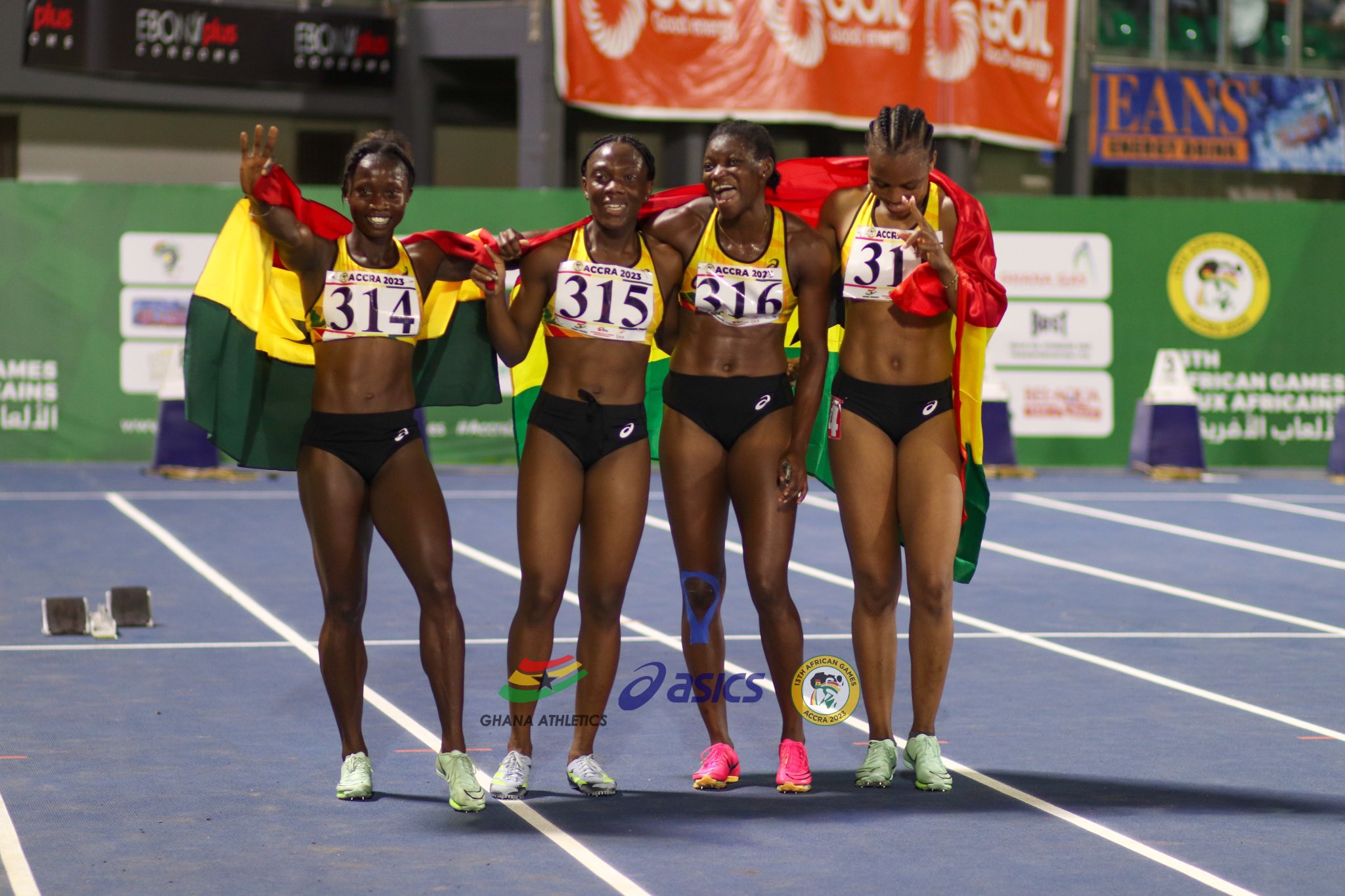
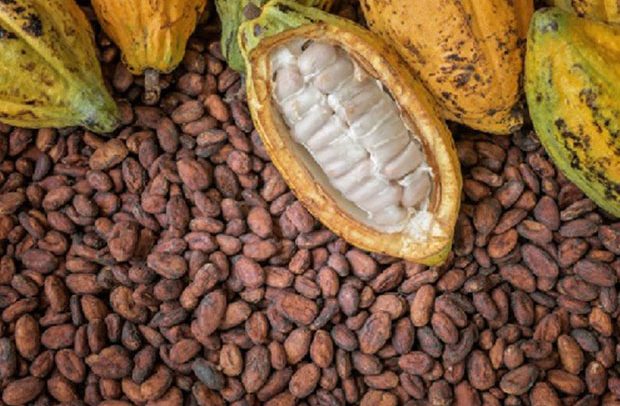

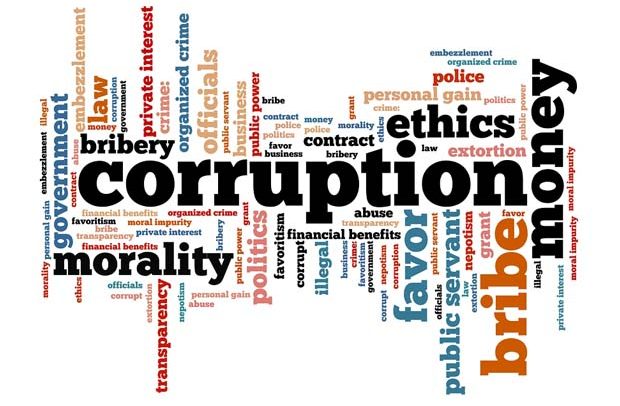



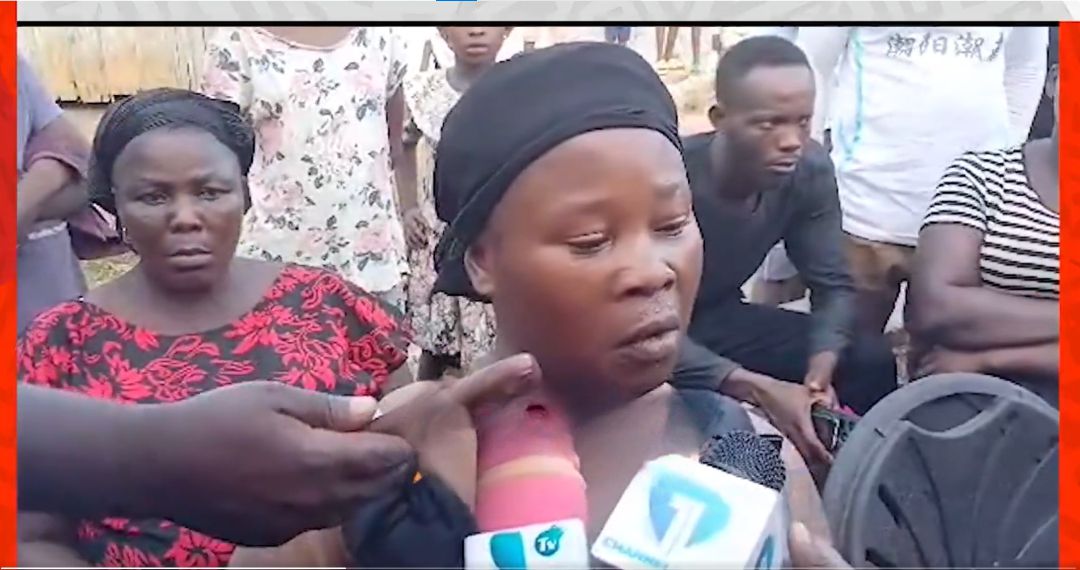



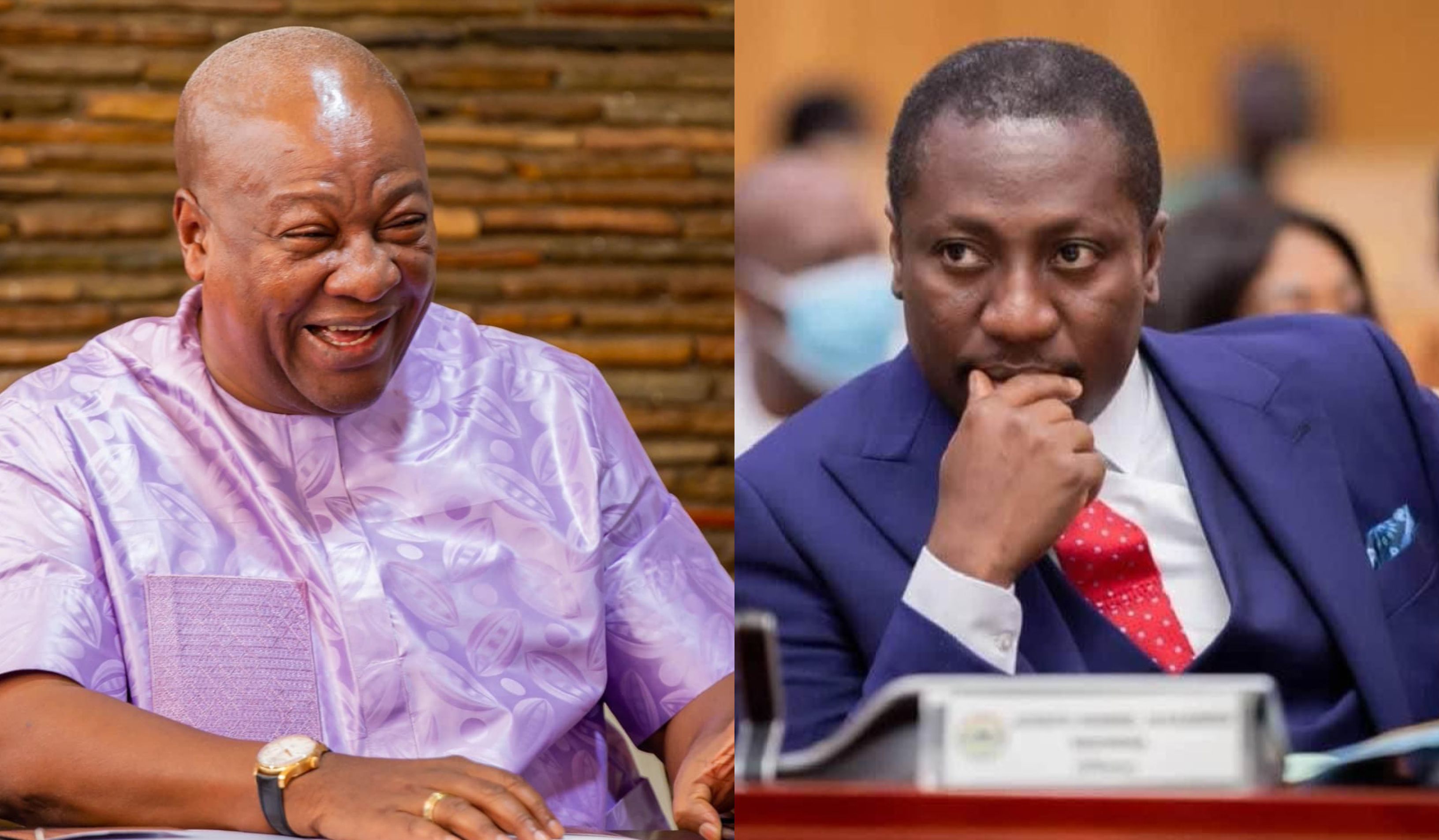





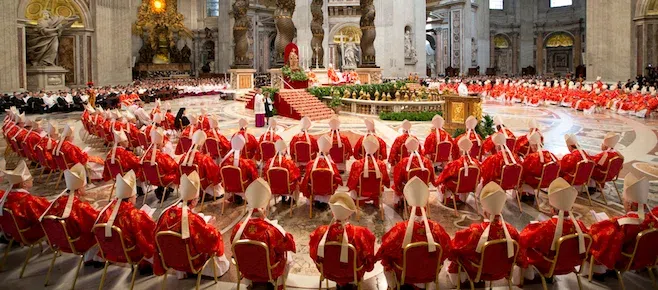


Facebook
Twitter
Pinterest
Instagram
Google+
YouTube
LinkedIn
RSS